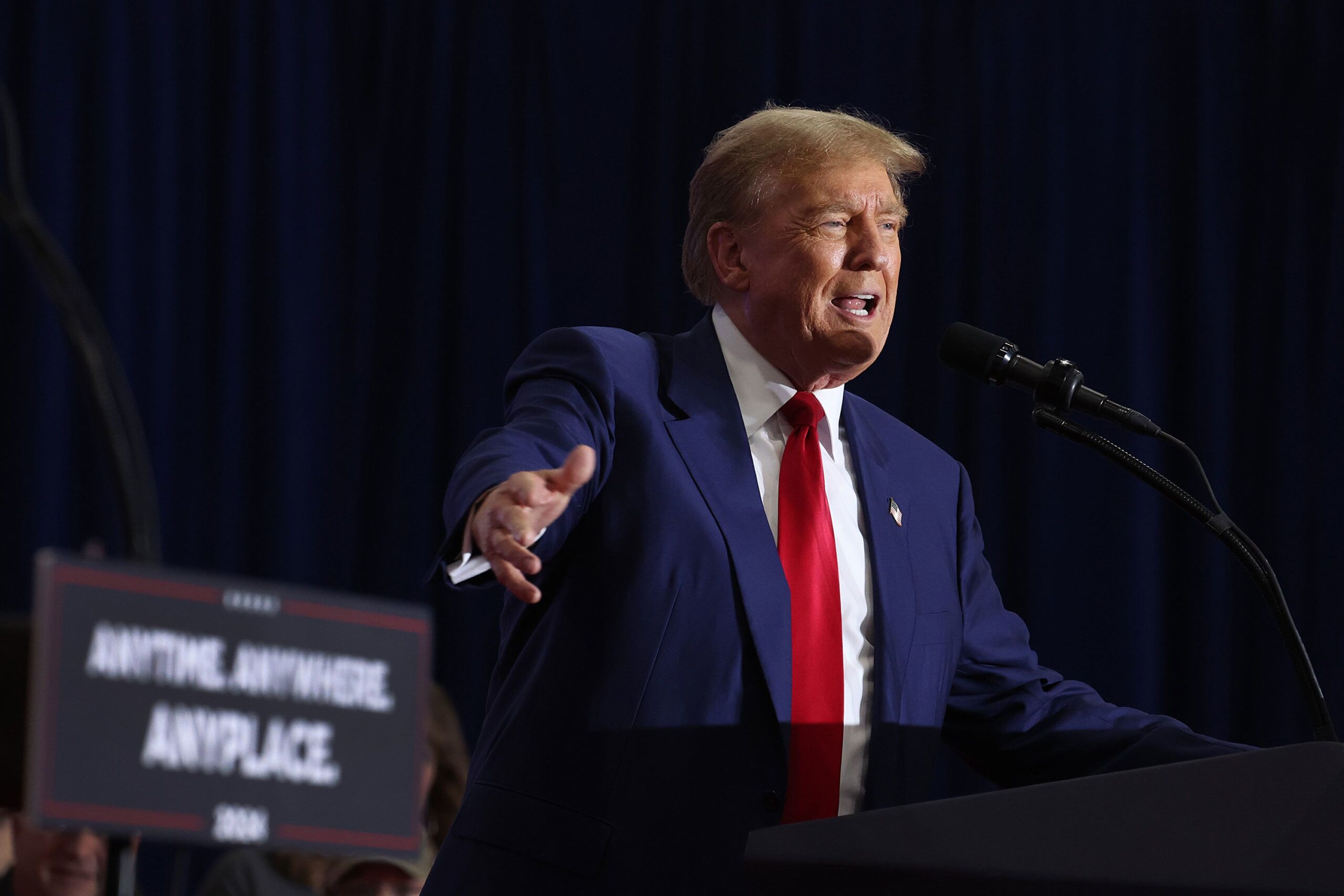In a recent public appearance, former President Donald Trump continued to propagate misinformation regarding the New York civil fraud case he lost. He made a bold, yet incorrect, assertion on Tuesday, claiming that an appeals court had previously declared him the victor of the case.
Trump’s erroneous claims were particularly pronounced during a campaign rally in Wisconsin on Tuesday. This event took place a day after he posted a $175 million bond to halt New York Attorney General Letitia James from initiating the collection process on Judge Arthur Engoron’s $454 million judgment against him.
Trump stated, “The Appellate Division actually gave me the case. I won the case, because I won it in the Appellate Division. …I won the case because it’s called statute of limitations. The Appellate Division ruled in my favor. That means most of the case is gone; the judge refused to honor it. Now, he – nobody ever heard of that before. So the Appellate Division said, ‘You won the case, that’s it,’ and the judge said, ‘I don’t accept it.’ He’s called a rogue judge. He’s a rogue judge; he’s a fake judge.”
Fact Check: Trump’s Claims
Contrary to Trump’s assertions, the appeals court never declared him the winner of the case. The June 2023 ruling did exclude Ivanka Trump, his daughter, as a defendant in the case, but it did not dismiss the attorney general’s claims against Trump himself, his adult sons, or his company. The ruling established a specific cutoff for claims in the case, stating that claims against Trump and the other defendants were too old if they pertained to transactions that were “completed” before certain dates. The court set the cutoff date at July 13, 2014, for any defendants Engoron decided were covered by an agreement signed in 2021 by a top lawyer at Trump’s company.
Engoron subsequently ruled that Trump and all of the other remaining defendants were indeed covered by this agreement, that they submitted fraudulent financial statements more recently than July 13, 2014, and that they were therefore liable for civil fraud.
Trump has the right to argue that Engoron misapplied the appeals court’s language about the statute of limitations. He has filed an appeal of Engoron’s judgment, and it’s always possible he will win. However, the appeals court’s 2023 ruling simply did not say what he keeps asserting it did.
Clarifying the Appeals Court Ruling
Trump’s claim that the appeals court said, “You won the case, that’s it,” and Engoron said, “I don’t accept it” paints a picture of a judge who refuses to heed the clear words of a higher court. However, this is not what transpired. Engoron was tasked with interpreting what the appeals court meant when it barred any claims concerning transactions that were “completed” before July 13, 2014, for defendants covered by the “tolling agreement” signed in 2021 by Trump Organization chief legal officer Alan Garten.
Engoron rejected Trump’s lawyers’ argument that transactions should be considered “completed” when loan agreements were entered into and the money was disbursed, even if financial statements were later sent to the lenders as required by the loan deals. Engoron found Trump liable, writing, “Obviously, the transactions were not ‘completed’ while the defendants were still obligated to, and did, annually submit current SFCs [Statements of Financial Condition] to comply with the terms of the loan agreements.”
Addressing Trump’s False Assertions
Trump’s false assertions about the appeals court ruling have been corrected before, both by the media and by Engoron himself. After Trump wrongly claimed to reporters that “about 80% of the case is over” because of the appeals court ruling, Engoron clarified in court the next day: “This case arrived at the App. Div., as we call it, with seven causes of action. It left with seven causes of action. It arrived with 16 defendants. It left with 15 defendants. It arrived at the Appellate Division with a six-year statute of limitations. It left with a six-year statute of limitations, extended by both Covid tolling, and a tolling agreement. I understand that the defendants strongly disagree with this, and will appeal, in part, on this ground.”

